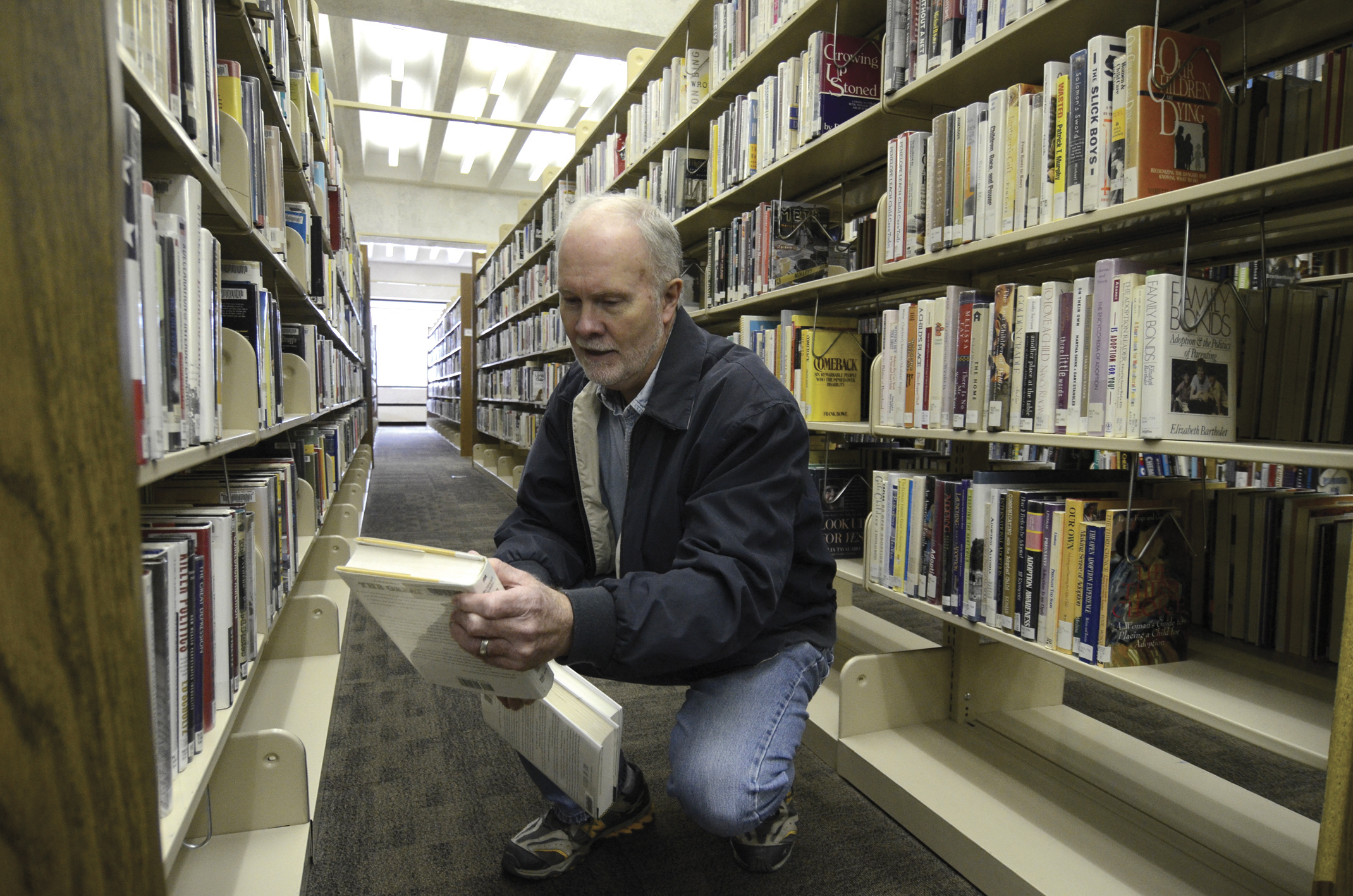CITY LIBRARIESBesides the Public Library in Chattanooga, some Hamilton County cities have their own library systems.• Signal Mountain• East Ridge• CollegedaleTHE NEW RULESOnce their current library cards expire, Hamilton County residents who live outside of city limits must pay a $50 per card, per year.
When Christina Atchison's family moved to Hamilton County this summer, one of the first things on the family's to-do list was to find a library.
A few weeks ago, Atchison took her 4-year-old to story time at the Eastgate branch of the Chattanooga Public Library for story time. On their way out, she went to the desk to sign up for a library card.
When the librarian checked Atchison's address and found she lived a mile outside of city limits, the next words dealt a blow Atchison wasn't ready for: $50 for library card before any books could be checked out.
"I am pretty sure my jaw hit the floor of that library," she said. "I had to question him and asked, 'Well, where do we go then?' He said there are no libraries for my family that would be free."
The $50 card fee isn't new. It has been a year since the Chattanooga Public Library began requiring the fee from non-city residents -- but because the library is allowing library cards to expire naturally after their traditional three-year term, some patrons are learning the tough news in waves.
"People who are coming up for renewal are still having a shock," said Eva Johnston, assistant director of the library, who had to start paying the fee herself this year because she lives outside the city. "People are pretty upset. It has been difficult for the staff to deal with it on the front lines."
Living in the county, Atchison has no free access to any municipal libraries and says that, in some ways, she feels cheated.
"They want our children to read and to learn but at a huge expense," she said. "I honestly would rather take my children to McKay's or even Barnes and Noble than to pay $50 to the library. What are my taxes paying for?"
City and county officials contend that, at this point, Atchison and other non-city residents' taxes are paying for many things -- but not the Chattanooga library.
Last year, the city allowed a 45-year-old sales tax agreement with the county to expire. The agreement spelled out how the city and the county broke down their financial responsibilities for agencies jointly funded by the pair and, without sales tax revenue, county officials decided they no longer could afford to fund the library.
Chattanooga fully took over funding the library, limiting its board to only city representatives and changing its name from "Chattanooga Hamilton County Bicentennial Library" to the short, straight-forward name it has now -- The Public Library.
And, the city also decided to make those who live outside the city pay $50 for a library card.
"The taxpayers of the city of Chattanooga are paying for our library and therefore have access to it. It makes sense. It's equitable," said Richard Beeland, spokesman for Chattanooga Mayor Ron Littlefield.
County Mayor Jim Coppinger said he has fielded a number of complaints about the issue over the last year.
"I would like to revisit this issue with the city of Chattanooga in the near future. I know how important it is to all of the community, especially our children," Coppinger said. "But it is not a one-time expense we can just take care of in one fell swoop. ... The revenue stream went away, so we couldn't fund the library."
Johnston researched library fees in Nashville, Knoxville, Atlanta and smaller cities and found that a $50 was "comparable," she said.
Still, some county residents are unfazed by the new rules, saying the fees make sense because of the sudden budget shortfall.
David Spangenberg, a resident of Lookout Mountain, Tenn., forked over $50 for a card on Friday before he could check out two economics books and his wife, Dale, could renew the Steve Jobs biography she had been working on.
Paying the money "wasn't bad," Spangenberg said.
Spangenberg first encountered library fees for outside residents when he visited the Denver library in 1981 and they asked him to pay a $50 fee since he didn't live in city limits.
"It surprised me then, but this didn't shock me," he said Friday. "I understand the funding problem the county and the city got into. ...The reasons are very proper."
It's a worthy investment, he said, because his wife goes to the library about twice a month.
But other residents say the fee is an extra cost they shouldn't have to shoulder, since many still pay sales tax inside city limits.
This week, Sylvia Hildebrandt began contacting local officials about the fee. Her card expired in August and, after refusing to pay the fee, she walked out of the library feeling "like it was a funeral," she said.
"The decisions have been made totally outside of any referendum or community decision," she said. "I know libraries have never been free -- taxes pay for it. But you're still paying your same taxes or more, and then they're saying your family has to this much per person per year."
To get everyone in her family a library card would cost $300, she said, and "we can't afford $300 for library cards."
Hildebrandt said she isn't done trying to persuade local officials about the importance of keeping libraries accessible.
"It's not life and death, but I feel like, when you feed the culture of a city through a peaceful means like libraries, everybody gains," she said.
In the meantime, Johnston said the new board may tweak the policy to give more access to more residents. One idea is to introduce a $25 card that's good for six months, she said. That way families may feel less of a sting when it's time to check out books for summer reading.
